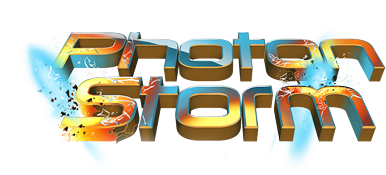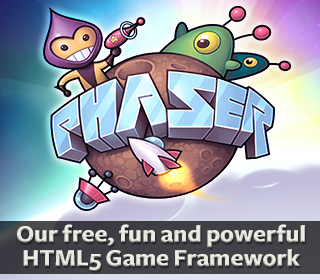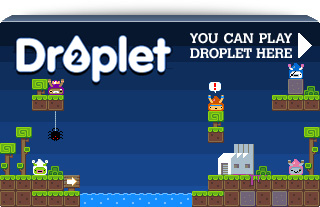Author Archive
-
Building an HTML5 game framework at the bottom of the world
6th Jul 201233
It’s been a while since my last post, but I’ve certainly not been idle. In fact you could say it has been one of the most exciting periods of time in Photon Storms‘ history so far. As mentioned previously I hung-up my Technical Director gloves and bid farewell to the wonderful team at Aardman. After a single day of holiday I hopped onto a 737 at London Heathrow, shot off into the air and 30 hours later landed in beautiful Wellington, New Zealand – quite literally the other side of the world.
My reason for being here is because the cool guys at Instinct Entertainment shared my same passion when it came to game development. They understood my desire to create a kick-ass and fully open source HTML5 game framework, and that is exactly what I’m here doing. These first few weeks are crucial to ensuring that our vision and plans make sense and that myself and the rest of the team draw-up a realistic roadmap that will see this project to the end of 2012 and beyond.
Why on earth do we need another HTML5 game framework?!
Damn good question 😉 It does feel like you can’t go for a month at the moment without another new framework being announced. But there are several key reasons why we elected to start from scratch rather than adopt something already out there:
- Very few of the existing frameworks actually care about the mobile browser, or optimise themselves for it. A lot of them just blast the entire contents to a single canvas and are done with it. For us the mobile web is the whole reason for existing in the first place and we’ll always optimise as best we can for it.
- Virtually none of the frameworks have any kind of community behind them. This is of paramount importance to me. Having helped build and nurture game development communities for over a decade I firmly believe that they are the true life blood of any successful framework. A place to talk, share code, get support and feel included in what is going on.
- The community will drive the features that end-up in the framework. We intend to be fully transparent about our development process, allowing you to feed into it and help us prioritise features.
- We wanted a powerful architecture, flexible enough for both old-skool retro style games, and much more modern ones too. Yes we’ll have tilemap support, but you won’t be limited to just using that for creating game levels. Yes we’ll have sprite sheets, but we’ll support alternative animation formats as well. We’ll have arcade level physics built in, but we’ll allow for Box2D if you want it. We’ve been very careful to ensure you’re not forced into doing things just our way, but can bend the rules or extend them as you need.
- Having spent many years working with Flixel I really appreciated what that did for developers, the way it helped them skip past the dry and dull set-up and just dive right in to making the game. I promise you’ll have the exact same level of ‘pick-up and play’ from this, and we’re working hard to keep function names and objects sensible and documented.
- Game Objects – these are not part of the core package, but you’ll be seeing lots of them! An example of a Game Object may be a ‘grenade’ object. Drop the file in, add in a line of code to create the object and it’ll appear in your game – bouncing, ticking and exploding as you’d expect a grenade to do. There will be a good range of game objects at launch ready for direct use in your games, or just for you to open, edit and tweak as needed.
- Online Tools to support your game making. We’re going to be providing comprehensive online level editor tools, animation tools, path tools and more. You won’t have to use them if you don’t want to, but they’ll be there if you need.
- Careful integration with 3rd party APIs. From realtime multiplayer APIs to direct phone billing and all the social ones you can think of in between. Games these days rarely exist in isolation any more, there are a wealth of additional services out there you can benefit from, and we’ll provide the hooks to do so.
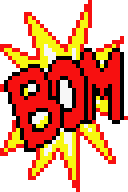 Most importantly of all though – probably the largest reason why this is being built is because it has been my dream and desire to do so for many, many years. Back on the Atari ST I released piles of source code for others to use in their games, on the PC I released hundreds of DarkBASIC code snippets and ultimately spent years working there helping the community, with Flash as lots of you know I spent months releasing tutorials and Flixel libraries.
Most importantly of all though – probably the largest reason why this is being built is because it has been my dream and desire to do so for many, many years. Back on the Atari ST I released piles of source code for others to use in their games, on the PC I released hundreds of DarkBASIC code snippets and ultimately spent years working there helping the community, with Flash as lots of you know I spent months releasing tutorials and Flixel libraries.This framework is really the culmination of all of this – the net result of decades of fascination and love for opening up game development to all abilities.
So when is it out?
Patience grasshopper 🙂 This week has been all about planning and careful structure (along with a few cool demos to check our effects pipeline will work!). We will be releasing our roadmap next week, with the first public release of the code shortly after. The plan is to develop on a live public github repo, so you can follow along and contribute from the start. Rest assured we’re in this for the long haul and are fully financed for the rest of this year, with the potential for that to carry on definitely. It’s exciting times indeed and I can’t wait to share what we’ve got in store for you. The strangest thing of all right now though is that we don’t yet have a name for it! It was going to be called Kiwi.js but that’s a popular node plugin. So back to the drawing board.
-
No more cheese Gromit: The future of Photon Storm
16th May 2012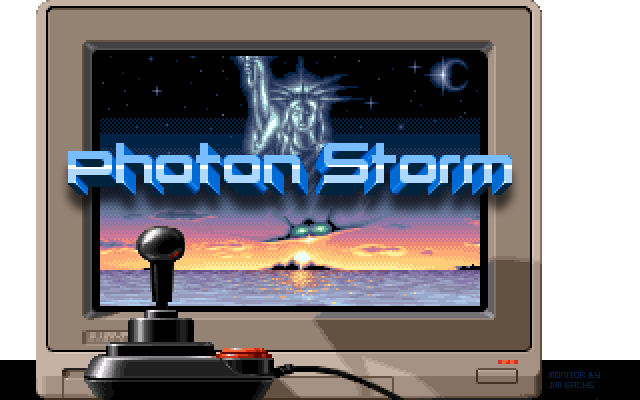
So the cat was let out of the bag today and it’s true: I’m leaving my very good friends at Aardman Digital and heading for pastures new. Giving up the “day job” and becoming a freelancer / indie dev hybrid. As you can appreciate this is both an exciting and somewhat scary move, especially being the sole income earner for my young family. But I’ve been careful with my planning and sensible with my predictions and will make the best of it that I possibly can.
Fancy working with Wallace and Gromit?
This of course means that Aardman are now looking for a kick-ass Technical Director to join their digital department. If you’re in the UK and either live near or would re-locate to Bristol and have the experience, then I strongly suggest you apply for this job. You’ll get to work with some fantastic brands and characters, including both Aardman’s own such as Wallace and Gromit, and 3rd party. There’s a truly brilliant and talented team there, working on fun stuff in a gorgeous office (complete with its own canteen and cinema). If this sounds appealing and you’ve got the skills then please do consider sending in your CV.
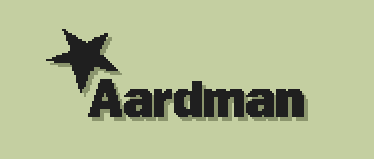 So you’re probably thinking why on earth would I give this up? There’s no one significant reason. It’s more a collection of smaller things which ultimately boils down to wanting a change in lifestyle that allows me to create the sort of games I enjoy and spend more time with my family in the process. I’ve been at Aardman for 6.5 years, indeed I was the very first employee in the department. And I’ve seen it grow and expand, taken on huge challenging projects and then morphed into a director role. Those of you in this position know it’s more about technical guidance than actually building stuff. And while you do have a large amount of creative input into a project, it’s always working with someone elses characters or brand. You can never really push it quite as far as you’d like 🙂 (and for sensible business reasons too).
So you’re probably thinking why on earth would I give this up? There’s no one significant reason. It’s more a collection of smaller things which ultimately boils down to wanting a change in lifestyle that allows me to create the sort of games I enjoy and spend more time with my family in the process. I’ve been at Aardman for 6.5 years, indeed I was the very first employee in the department. And I’ve seen it grow and expand, taken on huge challenging projects and then morphed into a director role. Those of you in this position know it’s more about technical guidance than actually building stuff. And while you do have a large amount of creative input into a project, it’s always working with someone elses characters or brand. You can never really push it quite as far as you’d like 🙂 (and for sensible business reasons too).But it’s not just about the creativity. In March my daughter had her second birthday, and this was really something of a wake-up call for me. I live quite a long way from the Aardman offices and the daily commute often means I’ll see a maximum of 5 minutes of my children, during a frantic pre-school rush in the mornings, each day. Often they’re both sound asleep by the time I get home. Even though Aardman were great in letting me work from home one day a week, I was still effectively missing my children growing up. And they’re only going to do that once! I know a lot of Dads are in a similar situation, and I’m under no illusion that my new role will be any less busy (if anything, it’ll be more so!). But at least the way in which I work will be under my control, and if I want to go and collect my son from school, I can do that now. That, to me anyway, is worth giving-up my generous monthly salary for.
The Future Sound of Photons
So what will happen from this point on? It’s actually pretty damned exciting. Photon Storm was incorporated as a company on April 18th, preparing for what’s coming. I’ll work out my notice until the end of June and then our new life begins, but with a really awesome project to kick things off. A great company based in New Zealand have hired me to build a fully open-source HTML5 game engine. We’ll be taking all the virtues of frameworks like Flixel, applying what we’ve learned from our HTML5 game development and mixing it all together. Our primary aims will be ease of use, solid documentation, examples and tutorials and a strong plugin driven architecture: A minimal core supported by a huge array of components to extend or replace the engine however you want. Everything that was ever planned and dreamed of for the aborted Reflex project will come to fruition here.
I’ll be working on this solidly for 6 months (and beyond). The nice thing about it, aside from the fact it’s a freaking cool project!, is that we’ve agreed I’ll have free time every week to work on our own games as well. This means you will start to see a rapidly elevated output from us as we set about finishing games currently sat collecting dust, and building out new ideas and concepts we’ve been itching to try but have avoided due to lack of time.
It also means that we’re open for contract work too. I’ve got to be practical about this change. The 6-month starter project is great, but I’m not naive enough to think that after this if I swap to being a full-time indie that it’ll continue to feed my family. Instead I’ll settle for trying to balance freelance/contract work with my indie dreams. This should ensure that we can carry on making great stuff and still pay the bills.
Maybe one day the indie side of it might be large enough, but I’m sure you can appreciate I need to play it safely for now. So if you’ve ever wanted us to create a game for you (HTML5 or Flash), or need help porting a Flash game to mobile browser, now would be a great time to drop me a line 🙂
*sniff* You’ve been beautiful guys
I also just want to say a quick thank you to everyone who has supported what we’ve been doing here over the years. Thousands of you have expressed your gratitude for our hard work, be it by enjoying our games or benefiting from our tutorials and code. We really do appreciate it when people drop us a line to say thank you, and I still get a genuinely warm and fuzzy feeling inside when we see or hear about our code helping fellow developers get their games made. We do try our best to answer all emails we get sent, no matter how trivial they may seem, and apologise to all the people who keep writing to us asking for intern-ships 🙂
There are a lot of great people out there that we’ve met, both online and off. People who continue to influence and inspire us on a daily basis. Your feedback and support has meant a lot. And as we enter this new and very exciting phase of “Photon Storm” we hope you’ll stay along for the ride.
-
What if your game characters had children?
2nd May 2012Very often as indie developers we’re responsible for both the game build and game story. And that’s assuming there even is a story in the first place. We don’t typically create “game bibles”, meticulously planned out for months in advance. And other than perhaps doing a sequel, nearly every game we make is treated as if it’s being built in complete isolation from the one that came before. But what if instead of doing this, we linked them together using a “family tree” of game characters, common environments and a shared lore?
For example, say hello to Bob:

Now Bob here could star in his own little piggy platform adventure. Happily running and jumping around. Perhaps he has a special ability like shooting from his snout? Whatever we decide to develop, this becomes Game #1, we publish it and carry on with our next game.
In Game #2 we decide to have a female piggy protagonist called Sally:
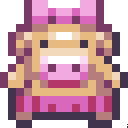
This time it’s not a platform game, but a time management one. For the sake of originality (and to help uphold blatant gaming sexism) let’s say Sally is in charge of a diner and must dash around serving the customers. And who should appear as a customer a few times? Yup, it’s Bob, fresh back from his platforming adventures. And as he dines they fall in love, eventually producing:
-
30 years of being a game developer in 3000 words
15th Apr 2012I borrowed the majority of this text from a great private forum I’m on, where everyone gave a potted biography of who they are and how they got to where they are today as a means to introduce themselves. I wrote my introduction 3 years ago and have toyed many times with the idea of posting it here for all to see, warts and all. And after some editing and refreshing of content I’ve finally decided to do so. The title is a little misleading of course as I’ve not been a game developer for 30 years, but I have always wanted to be, and that passion and love has never left me – as you’ll find if you dare to read on 🙂
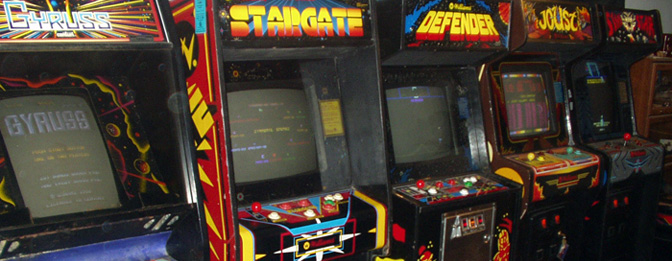
I know it’s way too long and probably not even my Mother would read until the end, but here we go. This is how my love affair with computing and game development started, and lead to where I am today…
My name is Richard Davey. I don’t really use pseudonyms on the internet anymore (spent enough years doing that in Quake clans!) but l’m part of Photon Storm. I’ll be 37 in August and I live in a lovely part of the UK with my wife, 6 year old son and 2 year old daughter.
Growing up Atari
Back when I was the age my son is now, my parents were complete technophobes and didn’t buy into the “every home must have a family computer” one bit. So it was a long time until I got one of my own. Ironically my Mum is now the most hardcore gamer I know and I swear 40% of her annual earnings goes direct to Big Fish Games.
I may have been computer-less but I was addicted to the arcades. All of my “holiday money” would vanish into the latest Atari, Williams and Sega machines. When I was 8 we moved house and I made friends with the kids in my new street and got my first experience of home computing. There were ZX81s and Spectrum 48ks within a few houses and that was it. I was utterly hooked. To my shock (as it wasn’t even Christmas or my birthday) one day my Dad bought home a computer: A Toshiba MSX.
In hindsight I appreciate just how amazing that computer was. Built-in cartridge port letting me run all the hottest Konami and Capcom games, tape drive so I could buy budget games from the newsagent, really nice graphics, really nice sound. But no other kid within a hundred miles owned one which made aquiring new games next to impossible. But it did give me my first taste of programming. Type-in listings from magazines and hacking around in BASIC. The MSX and later a Spectrum +3 served me well for a few years until I hit secondary school. And via another kid there I was introduced to the Atari ST.
My whole life changed. It was one of those moments you know? Those real life changing moments. Getting that ST home. Hooking it up to this piece of trash black and white TV in my bedroom. I just knew there and then I was addicted, and that my life would be one spent in computers.
I wasn’t wrong 🙂
-
Flod 4 Released for JS and AS3 – New tracker module formats supported
4th Apr 2012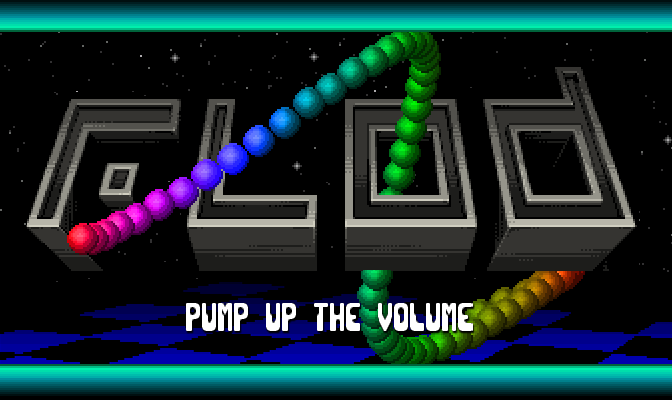
For those unfamiliar with Flod, it is a set of JavaScript and AS3 libraries written by Christian Corti, that can accurately playback lots of different Amiga, PC and Atari ST music formats natively. It supports all of the common formats: FastTracker II, Ultimate Soundtracker, ProTracker, NoiseTracker and lots more including DeltaMusic, David Whittaker, FredEd and Jochen Hippel format tunes.
There are download packages for HTML5/JS using the Web Audio API found in Chrome. Also available are the AS3 class files for Flash.
Check it out on the Flod page.
Hire Us
All about Photon Storm and our
HTML5 game development services
Recent Posts
OurGames
Filter our Content
- ActionScript3
- Art
- Cool Links
- Demoscene
- Flash Game Dev Tips
- Game Development
- Gaming
- Geek Shopping
- HTML5
- In the Media
- Phaser
- Phaser 3
- Projects
Brain Food
